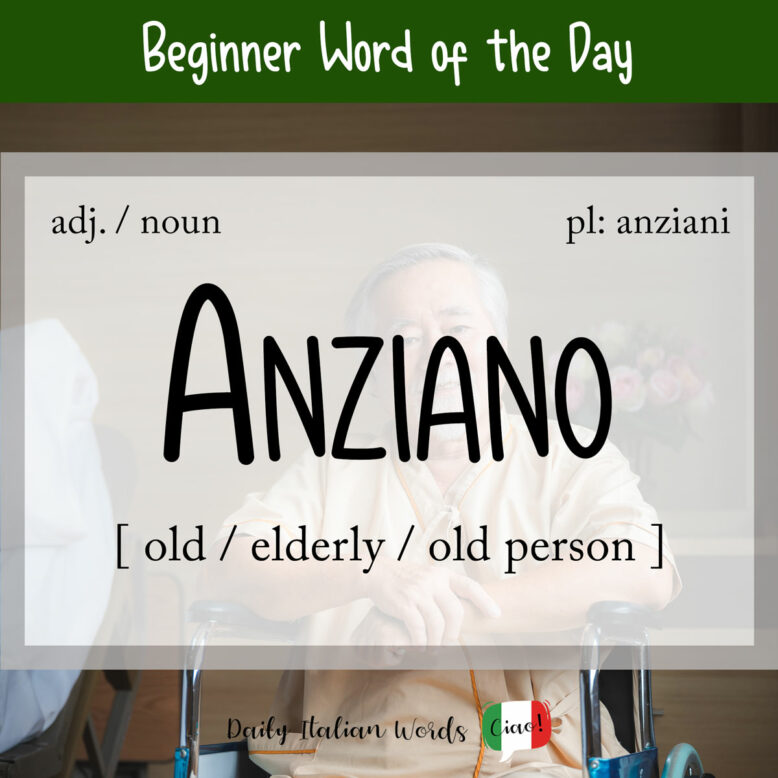In Italian, there are two possible ways to translate the word old:
- vecchio: this adjective can refer to people who have lived or things that have been around for a long time; it can also mean old as in ‘long-established’ (e.g. an old friend = un vecchio amico)
- anziano: this adjective refers to people who have lived for many years, but not things; it can also translate as senior when talking about a person with a high rank or status (e.g. the senior accountant = il contabile più anziano)

Unlike vecchio, which can sound quite impertinent when talking about a person’s age, anziano is more polite and respectful.
Il signore anziano sta camminando lentamente verso la piazza.
The old gentleman is walking slowly towards the square.
The feminine form of anziano is anziana, and their respective plural forms are anziani (masculine) and anziane (feminine).
- (io) sono anziano / anziana = I am old
- (tu) sei anziano / anziana = you are old (informal)
- (lui) è anziano = he is old
- (lei) è anziana = she is old
- (Lei) è anziano / anziana = you are old (formal)
- (noi) siamo anziani / anziane = we are old
- (voi) siete anziani / anziane = you are old (plural)
- (loro) sono anziani / anziane = they are old

Anziano is also used in comparative sentences where the ages of two or more people are compared.
Mario è più anziano di Maria.
Mario is older than Maria.
Mario è il più anziano dei tre fratelli.
Mario is the oldest of the three siblings.
Like many adjectives, anziano, along with its feminine form, can be used as a noun that means elderly person or senior citizen. In its plural form, it means the elderly.
Dobbiamo fidarci degli anziani perché hanno più esperienza di noi.
We have to trust the elderly because they have more experience than us.

Trivia
– In Italian sociology, people over 65 years old are considered anziani.
– Colloquially, a student who has attended university for more than two years is called anziano or studente anziano.
– In the ancient Republic of Florence (Repubblica fiorentina), il consiglio degli anziani (lit: the elderly council) was a small group of “wise” senior members of the most powerful families inhabiting the city. It was a government institution with legislative and executive powers.
Heather Broster is a graduate with honours in linguistics from the University of Western Ontario. She is an aspiring polyglot, proficient in English and Italian, as well as Japanese, Welsh, and French to varying degrees of fluency. Originally from Toronto, Heather has resided in various countries, notably Italy for a period of six years. Her primary focus lies in the fields of language acquisition, education, and bilingual instruction.


